How Has the Unstoppable Rise of Streaming Platforms Impacted Film? We Asked the Experts
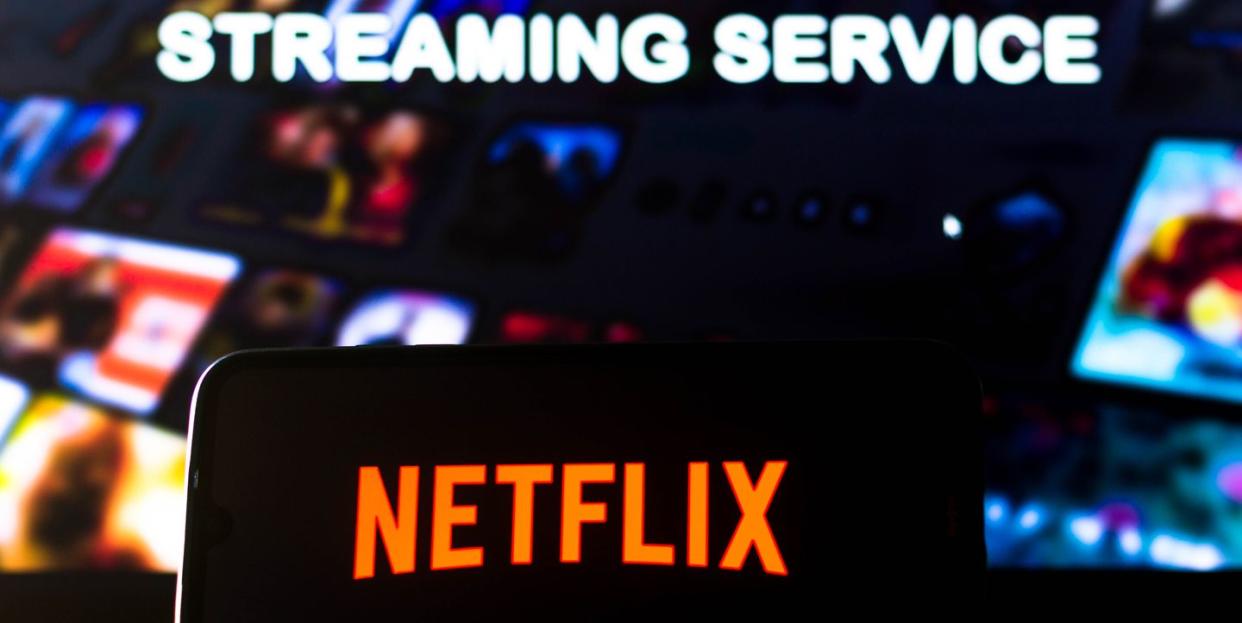
It used to be that catching your favourite programme meant cancelling your social plans and staying at home with the TV Guide to hand. Should it be a big news day, or should an important sporting event run over, your programme might get bumped from the schedule altogether and then who knew when you were going to find out what happened next on Buffy The Vampire Slayer?
And, unless you were the proud owner of a costly satellite subscription, it might be years and a DVD boxset before you found out exactly why The Sopranos was supposed to be the best thing ever made.
Streaming platforms changed all of that. When Netflix transitioned from a DVD delivery service to an online hub in 2007, it lit the fuse on a revolution in how we consume and create content. (A revolution, incidentally that would indeed be televised). At once, appointment TV was replaced with TV you could watch any time, anywhere.
Last year, Netflix counted 204 million subscribers globally, with a library of over 3,600 movies and 1,800 shows. Its revenue in 2020 was a staggering $25 billion (around £18 billion), and an ever-increasing number of streaming platforms has emerged to wrestle Netflix for dominance of your bandwidth and bank accounts: Amazon Prime (150 million subscribers), Disney Plus (87 million), HBO Max (38 million) and Apple TV Plus (10-33 million) are now just a few of the platforms demanding a share of your attention.
More platforms means more to watch, of course. But, by and large, these platforms aren’t just churning out disposable content. Increasingly, content produced by streaming service studios is gaining critical recognition at the highest level. In 2021, Netflix led the pack with 16 films nominated for a total of 35 Academy Awards nominations in 2021, including Vanessa Kirby’s Best Actress nomination for Pieces of a Woman, Da 5 Bloods’s nomination for Best Original Score and Best Animated Short winner If Anything Happens I Love You.
And, after more than a year of pandemic-induced lockdowns, streaming platforms aren’t just creating Oscar-worthy content, but serving as hosts for heavily-feted films like Nomadland, Judas And The Black Messiah and Promising Young Woman. With cinemas closed during awards season (in the UK, at least) online platforms provided the only way for audiences to see these films.
The advent of streaming has fundamentally altered how we consume entertainment. But have streaming platforms made it easier for filmmakers to get their stories told, or has the drive for endless programming had a detrimental effect on both creativity and diversity? We spoke to key figures involved in the industry to find out.
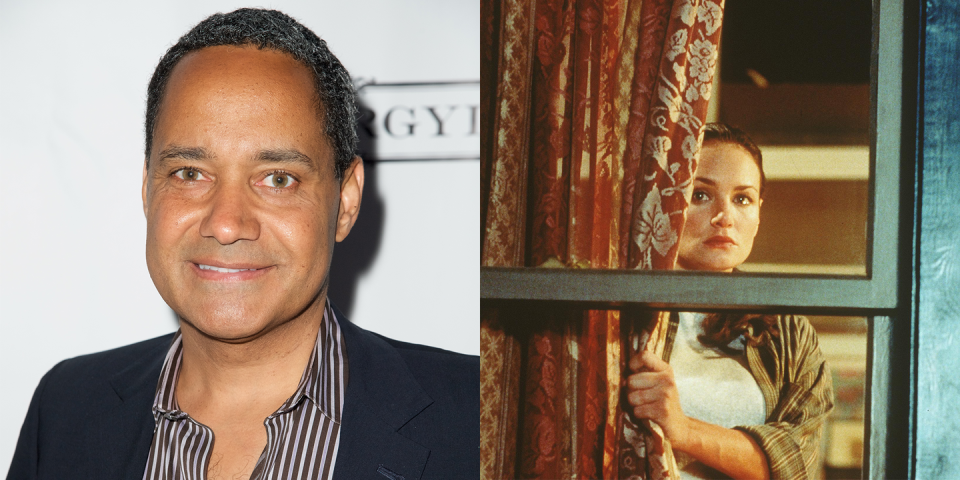
The Writer
Jeffrey Reddick grew up in the Kentucky hills in a trailer with an outhouse. In his own words, he was “poor and had no connection with the movie industry.” A chance screening of A Nightmare On Elm Street fired his imagination and helped him decide on the direction he wanted his life to take.
“I had an idea for an …Elm Street prequel so I found out who ran New Line Cinema and sent in my script,” he says. “They sent it back saying they didn’t take unsolicited material. I wrote a letter back like ‘Look sir, I’ve seen three of your movies, so I think you can take five minutes to read my story.’”
The Freddy sequel didn’t get optioned but Reddick did get an internship at New Line. He stayed for there for eleven years before the studio made his first film, Final Destination in 2000.
With several projects currently in development at Netflix, Reddick is brilliantly placed to contrast the old studio model with how streaming platforms currently operate. He admits that while he worked at New Line, getting Final Destination made was still a “hard sell”.
“Back in the day you could actually take a pitch in to a network or a studio,” he says. “I think it’s a lot harder now because things have migrated to streaming services. They’re almost like mini studios.”
Reddick – who is currently working on two animated shows for Netflix – explains that the bigger streaming studios will require a complete package including a pilot or complete script when it comes to pitching an idea.
For one of his two animated shows, he says “We had to put together a pretty massive package with an animation company on board, writers on board. A really fleshed-out pitch with artwork” whereas with Final Destination in the late nineties, New Line bought it off an eight-page treatment.
“For the first animated show I met with a production company that had already gone down the road a bit with Netflix on the project,” he explains. “They brought some writers together and developed a full arc for the show, where it was going to go. It’s based off a well-known IP which helps (it hasn’t been announced yet but it’s based off a New York Times bestselling book). But it still took six months (or longer) to get Netflix to sign off on it.”
In other words, streaming platforms like Netflix and Amazon might commission a lot of content, but they’re meticulous in what they pick up.
Another challenge in getting something commissioned, Reddick says, is that Netflix in particular is “very segmented” with different subdivisions focusing on different genres.
“And they don’t cross streams,” he says. “I knew when I worked at NLC, if a script came in that didn’t work for the action team but could work for home video, they would send it to the TV department. There was a lot more cross-pollination. I know at some places like Netflix if it doesn’t work for the one department you’re going in to and you want to submit it to another department, you have to start from scratch. It’s not like they’re just going to hand it over to someone in another division for you.”
Despite the challenges, Reddick believes platforms like Netflix are ultimately better homes for creatives, often backing projects that might not have been picked up by traditional networks, or might have been cancelled if they didn’t manage to find an immediate audience.
“Another thing about streaming services is that once they get involved in a project, they’ll commit to a full season of a show of maybe eight to ten episodes,” he says. “With a film you’d only get them to commit to one, and in the old days with a network you might only get them to commit to a pilot. With a place like Netflix you’ll get a straight-to-order season guaranteed and that was impossible before streaming services came along. You'd have to shoot a pilot, test the pilot, try to sell the pilot, then hope it became a hit. And sometimes if it wasn’t a hit within two to three weeks they would just drop it. A streaming service like Netflix trusts its creative instincts enough to know that sometimes it takes an audience a bit to catch on and you have to rely on word of mouth in a way that you couldn't do in the gold old network days.”
Naturally, with more opportunity comes more challenges. With everyone from Kate Winslet to Alexander Skarsgård staring in premium streaming shows, getting a project noticed among all the A-lister vehicles can be tough.
“I think now there are a lot more challenges, because streamers want to have stars attached,” says Reddick. “Now you have to compete now with all the A-listers who are setting up projects. There’s more competition, but also more services so ultimately I think there is a lot more opportunity for creative people.”
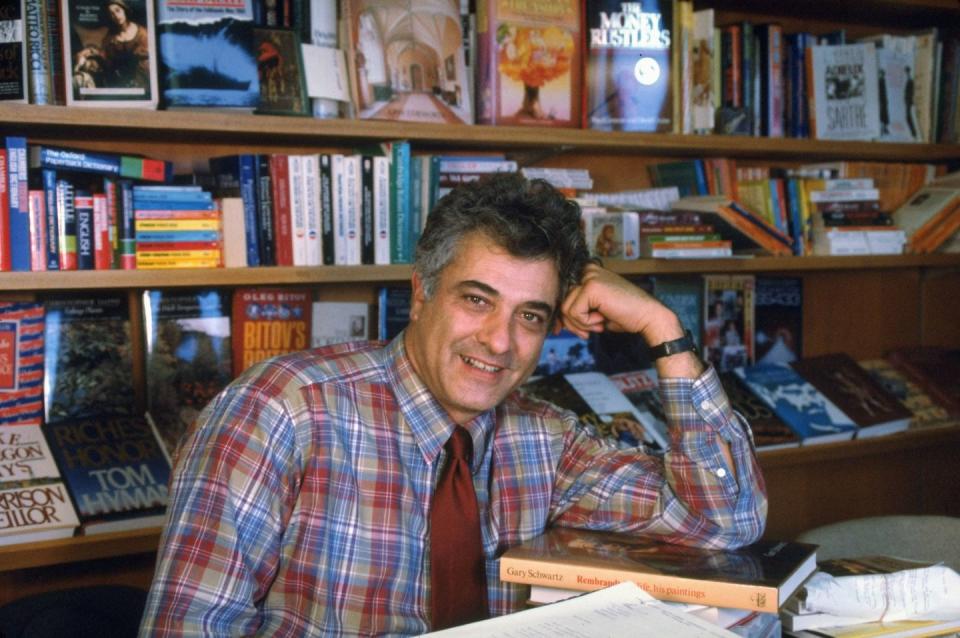
The Documentarian
It isn't just horror films or animated series that audiences are hungry for. From Tiger King to The Battered Bastards of Baseball and endless true crime investigations, Netflix has become somewhat of an industry leader in offbeat documentaries. Naturally, then, our appetite for gripping real-life stories is at an all-time high.
Peter Mayer, a British filmmaker in his late 30s, recently produced his first documentary, The Boy From The Wild about his own experiences of growing up on a South African game reserve in the 1980s.
Mayer initially made the documentary with television in mind, taking into consideration its overall length and including obvious spaces for commercials. But, when he started speaking to distributors about getting the finished film to audiences, he was advised that online services might be a better platform for the project.
“The distributors were telling us that online is very much the way forward,” says Mayer. “They weren’t talking about theatrical releases unless it was for smaller festivals, and they weren’t talking about TV unless it was National Geographic or BBC Wild. Most pushed it towards video on demand and online.”
It was when the film was listed on IMDB that Mayer began to receive attention from streaming platforms. Amazon Prime was the first to come aboard, and now hosts the documentary in the UK and the US, while a forthcoming deal with Apple TV will offer worldwide distribution.
Not only did opting for streaming platforms potentially secure a larger audience, it made financial sense too; while a cinematic release might see the film sink without a trace, hosting it online gave audiences an indefinite amount of time to discover it.
“If you get a theatrical release you’re talking about weekend box office,” Mayer says. “As a documentary we’re never going to do anything like that. With it being online you’re talking to a wider audience. You get to have different market access. Particularly if you look at Covid, the last year cinemas have been closed, so [online] has been a great way forward.”
In the traditional model, Mayer admits that a theatrical release may not even generate enough money to allow him to fund his next project. By opting for streaming, he hopes he has a chance at doing it all again. He currently has a deal with three different studios in which he receives an up-front ‘buy-out’ fee, plus royalties.
“We get a pay-per-view commission cut, which is almost like how actors get royalties from their shows,” he says. “It does take longer, but if you’re smaller online can make a massive difference from a financial impact. For smaller filmmakers that’s very useful because you obviously need cash in hand to make your next film. If you don’t have something upfront it can take a long time to see a return.”
The benefit wasn’t just choosing a streaming platform, but choosing the right platform. Had Mayer’s film signed with Netflix it might have got lost in its content slate. By signing with the emerging Apple TV, Mayer believes his film has a better chance of being seen.
“Apple TV was a good thing for us because they’re small but they’re growing rapidly. At Amazon I’m not even plankton, but at Apple I’m more of a bigger fish, which means you might get better visibility, better viewing time and more financial results as well.”
The Distributors
As Mayer explained, it is a distributor’s job to work with producers to help a film find the best home possible, be that a streaming platform or a traditional theatrical release. Naturally, the aim is not only to connect with a wide audience, but to help the project develop as much revenue as possible in the process with DVD, streaming or video on demand.
Dana Webber is the CEO of Legacy Distribution, a worldwide distribution company. Having begun her career with Studios USA (now NBC Universal) and Warner Bros before setting up Legacy Distribution in 2009 she is well placed to explain how the business has evolved.
“When I started my career, I was 100% focused on US syndication, then, it evolved into cable. Today over 60% of our business is streaming,” Webber explains. “Broadcast and cable are [still] vital to the industry but streaming has brought so many new opportunities for producers that they may not have had before.”
Alan D’Escargnolle is the CEO of another distributor, Filmhub. With a background in start-ups, D’Escargnolle and was able to bring an innovative marriage of tech and business to the film industry.
He says that with platforms like Netflix and Amazon Studios now making their own content instead of simply hosting content made by others, the system is continually evolving.
“Until a few years ago distributors relied on selling ‘upfront licenses’ to streaming services,” he says. “They might sell a title’s upfront licence to Netflix for anywhere from $25,000 (£18,000) to millions of dollars, depending on elements such as cast. Now, with streamers such as Netflix, Hulu, etc., becoming their own studios and producing their own content, these up-front deals are very hard to come by.”
Instead, D’Escargnolle says distribution companies must now focus on revenue share agreements which don’t offer guaranteed upfront money, but do allow distributors to share in a film’s success, if it becomes a hit.
D’Escargnolle also laments the fact that platforms like Netflix have disproportionately adjusted consumers’ sense of monetary value. With many films now available for ‘free’ as part of subscription services, he believes audiences are less likely to pay to purchase or rent an individual film online.
“This has particularly hurt smaller, independent movies that do not have big-name actors or marketing budgets,” he explains. “As a consumer, if you can watch a Brad Pitt film for ‘free’ on Netflix (as part of your subscription) or ‘pay to rent’ it on Apple TV/iTunes, which are you going to pick?”
“More often than not,” he adds, “filmmakers are left to market their projects on minimal resources and goodwill in the independent film world.”
For Mayer, who also raised the concern of online piracy detracting from the earnings of smaller projects like his own, this adds a further level of uncertainty.
The Actor
While streaming may have complicated things for filmmakers, some actors have found the advent of streaming platforms means more opportunity – especially when it comes to telling stories from under represented groups.
JD Hunt is an actor whose credits include the film Adulting and the upcoming TV series The Underground. As a black British actor from a working class background he believes streaming services have not only given more chances to actors from similar backgrounds, but has created a home for less mainstream projects.
“Streaming was something that really blew up after I had entered the industry but is now very much seen as something in the forefront of it, and a place where a lot more diverse and riskier content lives and flourishes,” he says, pointing to the ways platforms like Netflix and HBO Max have encouraged long-form programmes.
“I can't imagine much of that content existing outside of those platforms without being heavily censored or diluted,” Hunt says. “It gives actors the opportunity to be apart of much bolder content, and writers the opportunity to tell the story that speak to them and wider audiences.”
The Script Doctor
Saurav Dutt is an Indian-born British author and screenwriter who has also occasionally worked as a script doctor. He agrees with Hunt that streaming platforms have changed what type of stories are told, with more focus being put on the writer, due in part to the larger budgets platforms like Netflix can offer – something he calls a “welcome power shift”.
"The streaming format amplifies the importance of the writer as the backbone of a show,” he says. “The episodic format means you're at the head of the table in terms of creative vision because you're given far more many tools to work with, such as having your writer's room better staffed.”
Dutt believes the pandemic also shifted the power further towards writers; with everyone stuck at home streaming platforms raced for new, fresh content to keep their captive audiences entertained, and it was the writers who came up with these ideas.
“The uptick in demand means you are fighting against many writers, but it's easier in the sense that the industry cannot be cliquish and inward looking as it traditionally known to be,” he explains. “Platforms will keep a bank of talent they can tap into, but if one platform rejects you, a writer can work on the script before pitching the show to another platform.”
And with many streaming platforms providing a global reach, there is more chance than ever for a writer to cater their work to a specific audience, thereby increasing their chances of having a project picked up.
“Netflix India differentiates itself from the Bollywood product,” Dutt explains. “India in particular likes multi-season ideas over miniseries, so you have to tailor your writing that way and be truly original.”
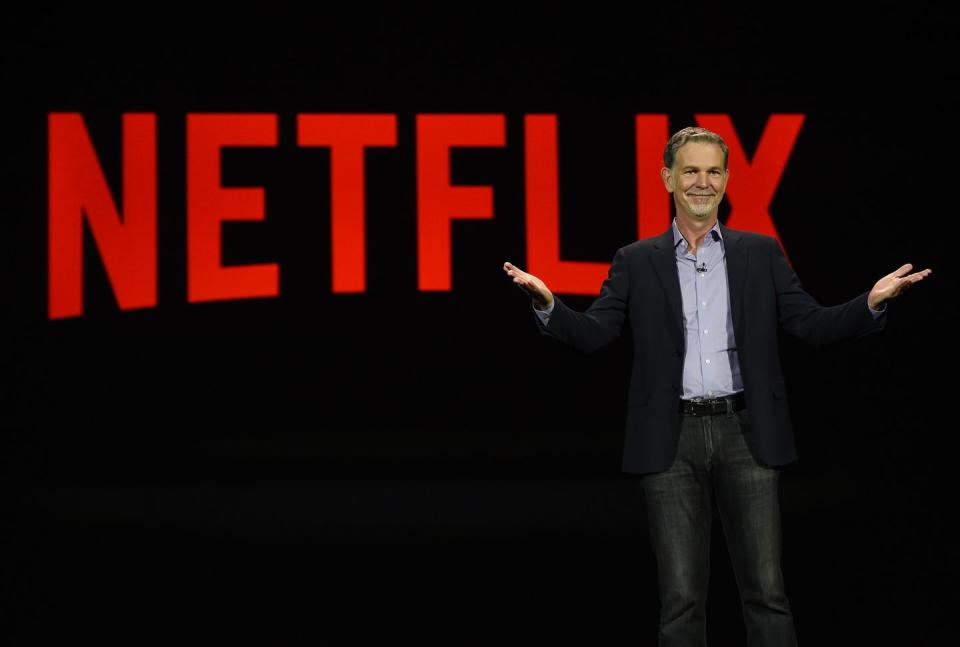
The Commissioners
But what about the people who actually commission these stories? Detractors say that streaming studios like Netflix put too much emphasis on content over quality (how else to explain Adam Sandler’s six picture deal there?). But how do the gatekeepers at large streaming services decide what gets made, or cancelled?
Representatives from Netflix, HBO Max and Amazon Prime all declined to speak to Esquire for this story so it’s difficult to get an exact appreciation of what commissioners do look for, and whether this differs between the platforms.
But while Dutt and Hunt have praised streaming platforms for an emphasis on diverse story telling, not everyone believes this to be the case. Franklin Leonard is an American film executive known and founder of the Black List, a compilation of the best un-produced films in a given year. Argo, Spotlight and Slumdog Millionaire all began life on the list before going on to huge success.
Leonard has pointed out that while streaming platforms often start out as champions of under-represented voices, once they have an established audience they tend to adjust their programming to cater to a white, middle class audience. He cites the example that Netflix’s first four major Oscar campaigns were for films created by filmmakers of colour while its 2019 campaign focused on Martin Scorsese’ The Irishman, a more conservative – and white – prospect. Likewise, Netflix’s 2021 Best Picture-nominated Mank – the David Fincher-directed epic about Old Hollywood staring Gary Oldman as the screenwriter behind Citizen Kane – very much fit this profile too.
Leonard believes these decisions aren’t driven by morals, but by analysis of its user data, of which Netflix – which famously is said to cancel shows based on its internal algorithms – reportedly relies heavily on. This in turn raises the question of whether streaming platforms have an obligation to to pander to our cultural biases with cookie cutter content, or actively try to challenge them.
That said, in December 2020 Netflix did publicly pledge to diversify its content, announcing partnerships with Stormzy, strategist Akua Agyemfra, and writer Bisha K Ali in an attempt to amplify British voices of colour.
Meanwhile, streaming platforms are working to elevate women within their corporate structures. Netflix recently promoted Bela Bajaria, formerly head of local-language programming, to head of global TV, while Rebecca Campbell recently became head of global streaming at Disney and HBO Max appointed Christina Sulebakk in charge of Europe, the Middle East and Africa.
Of course, the simple (and long overdue) act of placing women in positions of power does not deserve a round of applause, especially so considering Amazon Studios is the only major platform to have a female CEO in the form of Jennifer Salke. But these recent promotions do – in theory at least – signify a desire for inclusion at the major streaming platforms, an inclusion that should be reflected in their programming.
The DIY Creator
Of course, not all filmmakers feel welcomed by the traditional studio model or streaming platforms. And while some creatives try to adapt their talents to fit the ever-changing new frontier of streaming platforms, some, like director and composer Nicole Russin-McFarland, have been thinking outside of the box for a while. Without traditional studio backing, Russin-McFarland branched out, posting her content to Amazon and YouTube as a way of maximising her audience.
“I consider myself a film director and film score composer as my primary descriptives,” she says. “I still want to star as the lead in a science fiction movie and be up for acting roles in work made by other directors. Putting myself into acting roles in my own animated work helps me get there.”
This year saw the release an animated feature film titled The Homework’s Revenge: Esther in Wonderland. Not only did Russin-McFarland create the project, she also wrote the soundtrack using the music of Peer Gynt. It has currently had two million streams online.
“Animating my own work is me trying to defy stereotypes,” she says. “The regular female director or female producer stereotype is always about women not wanting to learn skills like men do… not knowing how the lighting works, how animation is made, how CGI is made. The masks, the makeup, nothing. Self animating my no-budget film work proves I am serious about this occupation and ideally, worthy of financing.”
This indie spirit celebrates Russin-McFarland's determination to succeed under her own terms. And while she believes that the internet has democratised whose stories get told, she argues that Hollywood largely only embraces stories from women, the LGBTQ community and people of colour if they fit rigid stereotypes.
“Realistically, I know that right now, medium and larger budget movies made by women have to meet certain criteria. Look at Little Women by Greta Gerwig, or the abortion road trip comedy Unpregnant. Do I fit into that at all? No way. I want to be Peter Jackson, swapping between animation and epic blockbusters."
Russin-McFarland’s determination to do things her own way may be influenced by the fact that she has been discriminated against throughout her career in everything from her age to weight to not having children. She also cites countless and relentless instances of sexual harassment (including being offered prostitution jobs in the guise of ‘modelling’) something which the #MeToo movement highlighted is only too prevalent in the studio system.
“I was also often offered prostitution gigs as “modelling” by assorted people who said it was ‘just you going to dinner’ with people like UN diplomats,” she says. “And when I said no, I was denied lots of auditions.”
Streaming platforms, however, are providing Russin-McFarland with a way to tell the stories she wants to on her own terms.
“With streaming, if you are a woman who wants to direct a movie about glow in the dark female vampire pirates, you can make that movie as long as you fundraise for it. Women are so accustomed to harassment and doubt, they don’t see themselves as businesswoman who happen to be filmmakers. They resign themselves to thinking it can’t be done, but it can!”
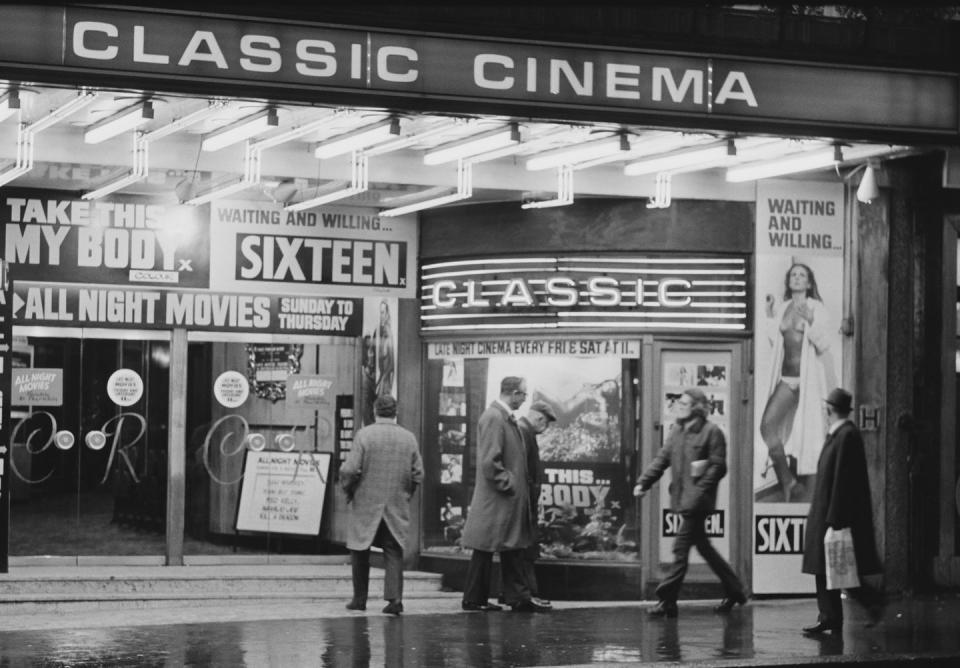
The Cinema Owner
An unexpected bonus of Russin-McFarland’s DIY-approach to filmmaking meant that while traditional studios and streaming platforms needed time to readjust to the new normal during the Covid pandemic, she was able to continue working as she had never been beholden to the corporate model in the first place.
Likewise, many cinema chains had to adapt to Covid-imposed restrictions. While most shut down entirely, some independent venues like the Riverside cinema in Woodbridge – one of the UK’s oldest cinemas – looked for innovative solutions, in some instances creative their own streaming platforms.
“We are a single screen cinema and achieved just over 73,000 visitors in 2019 and over 17,000 visitors in the first two months of 2020 before lockdown,” explains the cinema’s project manager Neil McGlone.
“When the pandemic hit in Marc, film lovers turned to streaming platforms in large numbers as that was their only available outlet,” he continues. “However a number of independent cinemas (us included) set up our own virtual cinemas on our website in collaboration with some independent film distributors to enable us to make films available to our own audiences whilst also receiving 50% of the rental fee to help support us.”
McGlone does not see streaming platforms as a threat to cinema and says that in his six years at the Riverside streaming has had “little to no effect on our audience numbers” pointing out that global box office receipts in 2019 hit a record high, surpassing $42.5 billion at a time when streaming was very thriving too.
What’s more, McGlone is confident about cinema’s continued role in the entertainment landscape, pointing to recent underperforming, streaming-only Disney Plus releases such as Mulan and Raya And The Last Dragon as signs that people prefer to watch films in cinemas if possible.
“On the streaming vs. cinema point, it’s always been the case that those who stream the most film content (legally!) are also the biggest cinema-goers,” he says. “They make a judgement on what they choose to see in the home or on the big screen. And of course the fact that the overwhelming majority of key titles have been held back for initial release in the cinema rather than on streaming platforms is a major vote of confidence in the business from the major studios.”
Whether cinemas will suffer or flourish as Covid restrictions ease up, and whether independent filmmakers will become swallowed up by the streaming studio system or find a place within it, remains to be seen.
Streaming in the time of pandemic taught us that there is a lot of great stuff to watch out there. It also taught us that it’s really nice to go outside every once in a while, too.
What is vital is that we challenge our own viewing habits so that different stories find their way to new audiences. Streaming services are here to stay. By challenging their algorithms and supporting the work of innovative and interesting filmmakers to float to the top, your subscription fee might just be worth something far more valuable.
You Might Also Like


